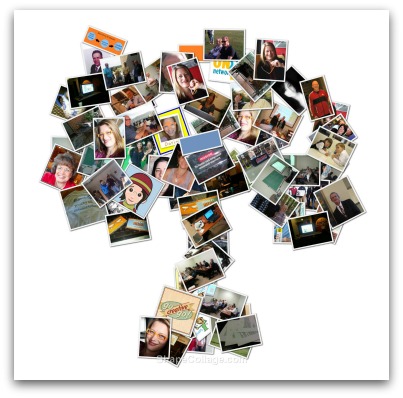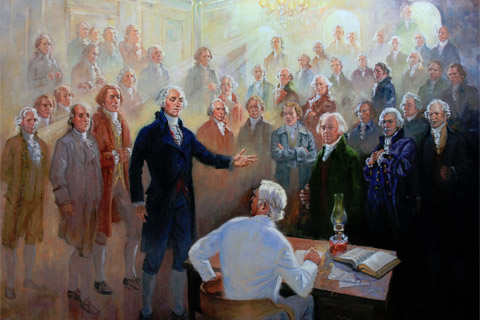Recording History as it Happens
Where were you on November 22, 1963? What were you doing when you found out about 9/11? What about the day of the Challenger disaster?
In the course of our lives we all have those days when the world stops turning and a moment is forever frozen in time.
Sometimes we make a record of those things. Most of the time we do not think to so or feel it isn’t necessary because we can recall it so vividly even years later.
I’m not sure if March 11th, 2020 is one of those days.
Probably not.
But it is the first time since this whole “coronavirus” thing began that I saw the light kind of flip on for some people.
“Uh-oh. This is really happening.”
~ Is it History? ~
As I write this we really have no idea how much this changes the world.
Panic seems to be a word thrown around too easily. Markets are crashing, businesses don’t know what to do and, doggone it, there is no toilet paper and bottled water to be found anywhere.
I don’t want to speculate. History with this thing seems to be moving in slow motion and where it goes is anyone’s guess.
I just want to suggest something.
If your world comes to a halt, if you find yourself in quarantine with nowhere to go and time on your hands – let’s do some family history, okay?
~ Really, Jeff? ~
Yeah, really.
I see the downtime of the coming weeks and months as an opportunity. It’s a chance to do some good things with time you never saw coming.
It seems in our rush in latter-day life we have turned the term “family history” into something to avoid. You say it and eyes glaze over. At church, knowing my calling is in family history, I seriously run into to two types of people: those who are so into family history they want to talk and those who are so turned off by it that they run the other way.
Even in the family we have folks who won’t touch it.
And I get it. I’m not here to hound you.
But if you’re reading this and you think you’ve got some downtime coming please consider doing a little something when it comes to family history.
Don’t know where to start? Hate the idea of family history?
Let’s talk about that.
~ Things You Don’t Know About Family History ~
Some people think family history is all about trees, digging up genealogy and wading through the endless detail of names and dates.
I’d like to suggest there are lots of other ways you can do some family history:
– Record Your Thoughts Right Now
We’re going through something historic, right? Why not create a record of what you’ve seen and experienced with this thing? As I shared a couple of weeks ago, my great grandmother on my mother’s side tragically died from the last great pandemic. What I wouldn’t give to have more detail from that time. Why not put down on paper what you are going through with this event?
– Dig Through Your Closet
Everyone has hidden treasures tucked away somewhere. What do you have that might be scanned and shared? It might be pictures, maybe it’s Dad’s high school yearbook, perhaps a baby book Mom put together years ago – who cares? This would be a good time to find something significant from someone you love and share it in some way.
-Tell a Story to a Youngster
Every smart phone is a tape recorder. It takes only a second to set it up to record voices talking. How hard would it be, during the long boring hours of quarantine, to tell the kids something they didn’t know from your past? How did your parents meet? What was the one time you really got in trouble when you were a kid? How did you select the names of your children? The topic possibilities are endless – and most stories can and should be told unscripted. That smart phone, by the way, can easily and nearly instantly share that audio recording to FamilySearch or on social media.
-Ask for Help
If you’re truly stuck and want help getting onto and using FamilySearch why not call your local Family History Consultant? Or, even use our own toll free number and call me? I’d be glad to talk about your family history situation and help you get organized and trained on what it is you want to do?
– Copy Your Census Form
All of us get to fill out the 2020 census. April 1st in census day. For those who have delved on to FamilySearch and have tried finding names you know how valuable any census can be. But did you know the census stuff you fill out will not be available for use in research for 70 years? Yup, we just got the 1940 census – but we have to wait 70 years from the date of each census after that. Why not save your children and grandchildren some waiting and just copy your census form before you turn it over? Seriously – just scan it and save it as a digital file or go to FedEx and copy it. It’s a vital record, it’s about family and it’s family history. Simple and easy to do.
The recording of history as it happens would be important to do if we have the presence of mind. Usually, when we take a big trip or have a major event like a wedding or a graduation we at least take a camera with us to record the moment.
But this moment in history with this Coronavirus thing represents a unique opportunity.
Let’s take advantage of it.



